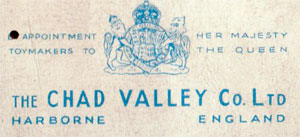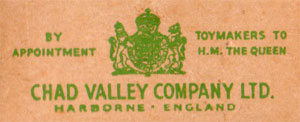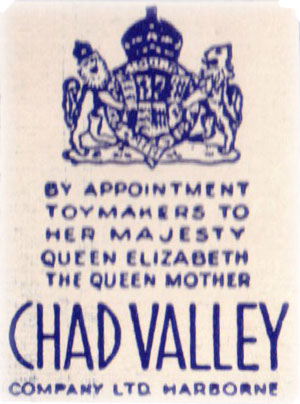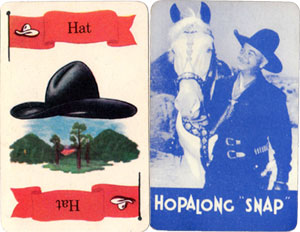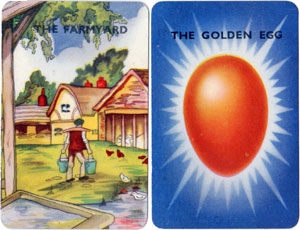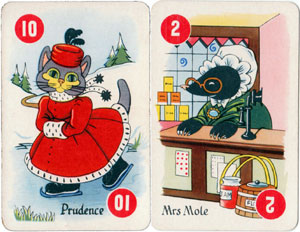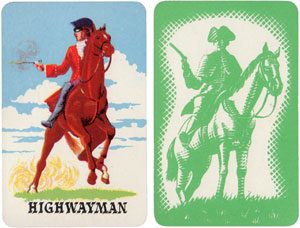Chad Valley Co. Ltd
Chad Valley Co. Ltd (incorporating Johnson Brothers (Harborne) Ltd, the long-established UK brand bought by Woolworths in 1988 and now sold at Argos.
Incorporating Johnson Brothers (Harborne) Ltd
In around 1830 Anthony Bunn Johnson founded a printing and bookbinding business in Handsworth, Birmingham, where he made games for children. In 1860 his two sons, Joseph and Alfred, branched out on their own, setting up a similar business, “Johnson Brothers” operating from George Street, Birmingham, England.
Later they moved to Rose Road, Harborne on the outer-edge of Birmingham. The new building was named the “Chad Valley Works”, located in the valley of the River Chad. They traded as Messrs Johnson Brothers (Harbourne) Ltd. and issued their first catalogue. This building became the firm’s headquarters for almost seventy years.
During the 1910s the Johnson family expanded their business with new types of toy to complement their successful range of paper and card-based products. A strong emphasis on the printed word was aimed at affluent families and well-educated children. Popular artists and illustrators of the day, such as Max Pollock and Linda Edgerton, were commissioned to design sets of card games such as Snap and Happy Families, and Walt Disney allowed them to reproduce some of their characters on a Snap game.
In 1920 the name was changed to The Chad Valley Co Ltd. The name Chad Valley first appeared on toys in around 1920. Chad Valley produced the games for Flutter Met Games in the 1930s: St George and the Dragon • Mother Hubbard Mystery • Knock Knock • Cardomino • Deuce.
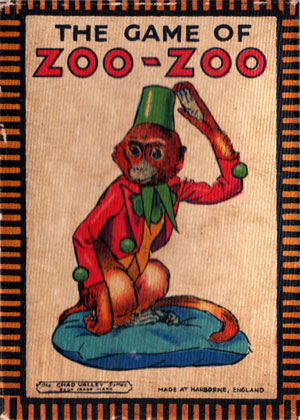
Above: The Game of “Zoo-Zoo”, 1920s see more→
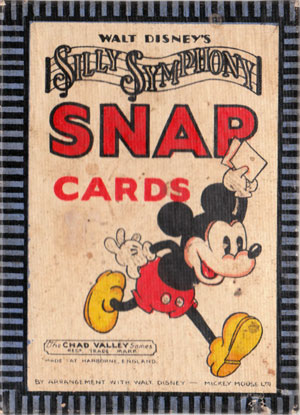
Above: “Silly Symphonies” or “Mickey Mouse Snap”, 1930s see more→
Royal Warrant of Appointment
In 1936 the Chad Valley Company was granted the Royal Warrant of Appointment: Toymakers to H.M. The Queen. In 1952 when King George VI died the Royal Warrant was amended to Toymakers to H.M. Queen Elizabeth The Queen Mother. The Royal Warrant was cancelled in 1960.
Above: Royal Warrants appearing on Chad Valley boxes are a guide for dating.
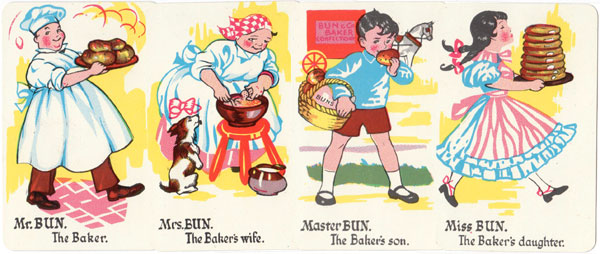
Above: Chad Valley “Happy Families” c.1950 see more→
In 1950 The Chad Valley Co Ltd became a public company: The Chad Valley Group. In 1954 the firm of Roberts Brothers Ltd, Gloucester (Glevum Brand) was taken over and the Glevum Works were closed in 1956. (Earlier, in 1904 the children’s games had been acquired from Woolley & Co by Robert Bros and now were inherited by Chad valley).
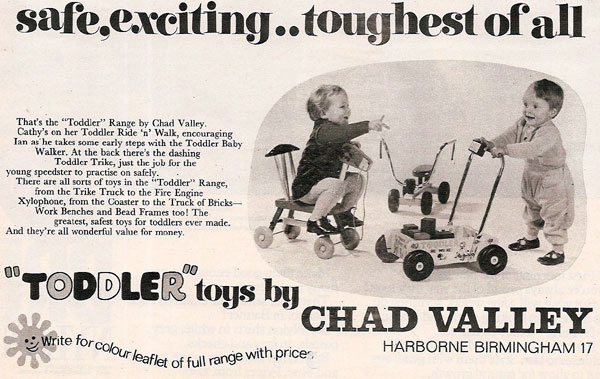
Above: advertisement, 1967.
After losing its direction in the 1970s following factory closures, in 1971 the Group was taken over by Barclay Securities and the next year acquired by British Northrop Ltd. In 1983 Woolworth Group (Kingfisher) bought the name for their own toys and games until their demise in 2008. Since then it has been exclusively owned by the Home Retail Group who distribute Chad Valley toys through their Argos stores.
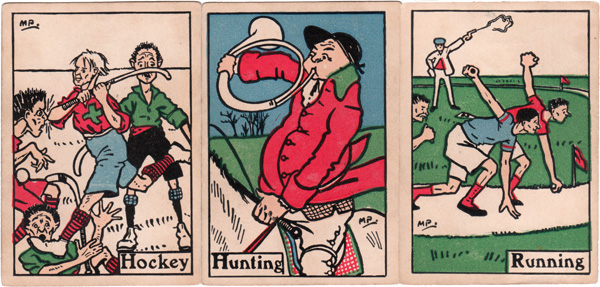
Above: ‘Sporting Snap’ drawn by British artist Max Pollock, c.1895 see more→
Max Pollock studied at the Birmingham School of Art and the Royal College of Art. See also: ‘Happy Families’ drawn by Max Pollock, c.1895→
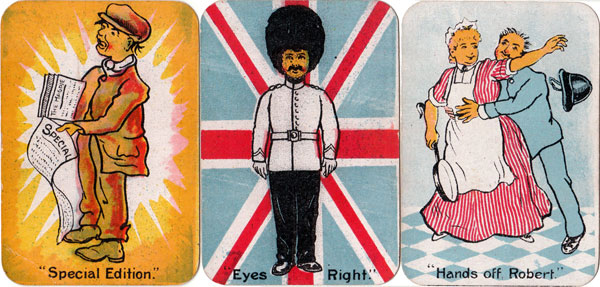
Above: Chad Valley “Special Edition” Snap 1912 see more→
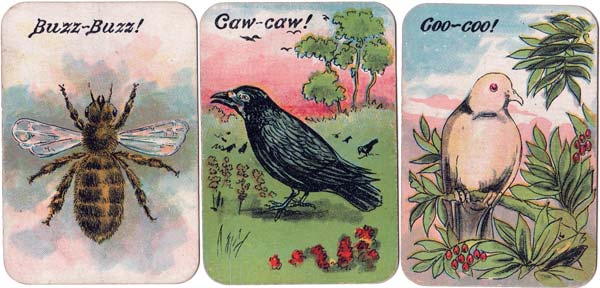
Above: Chad Valley “Forest Echoes Zoological Snap”, c.1912 see more→
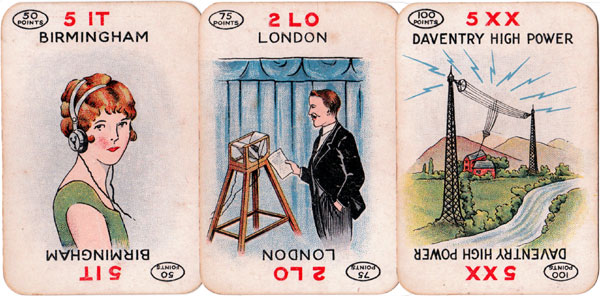
Above: ‘Sparx’ or ‘Listening In’ c.1925 see more→
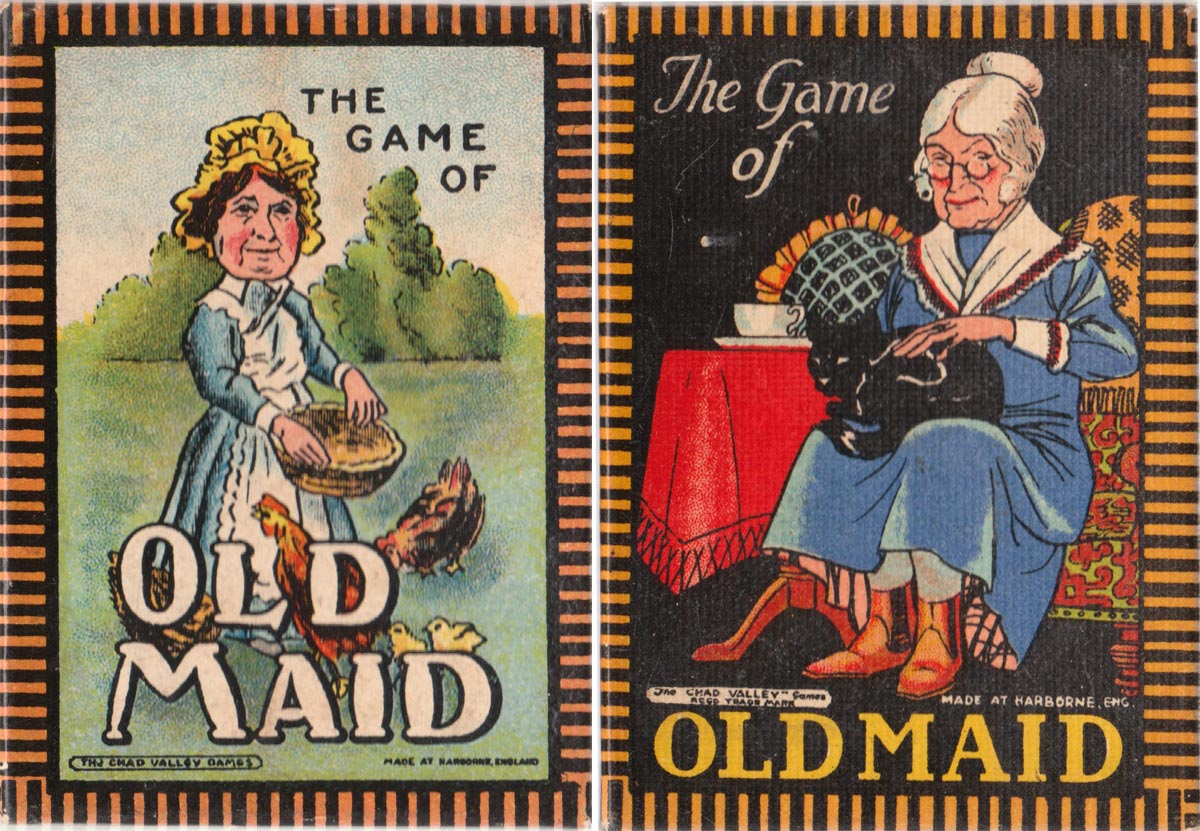
Above: three different editions of “The Game of Old Maid” see more→
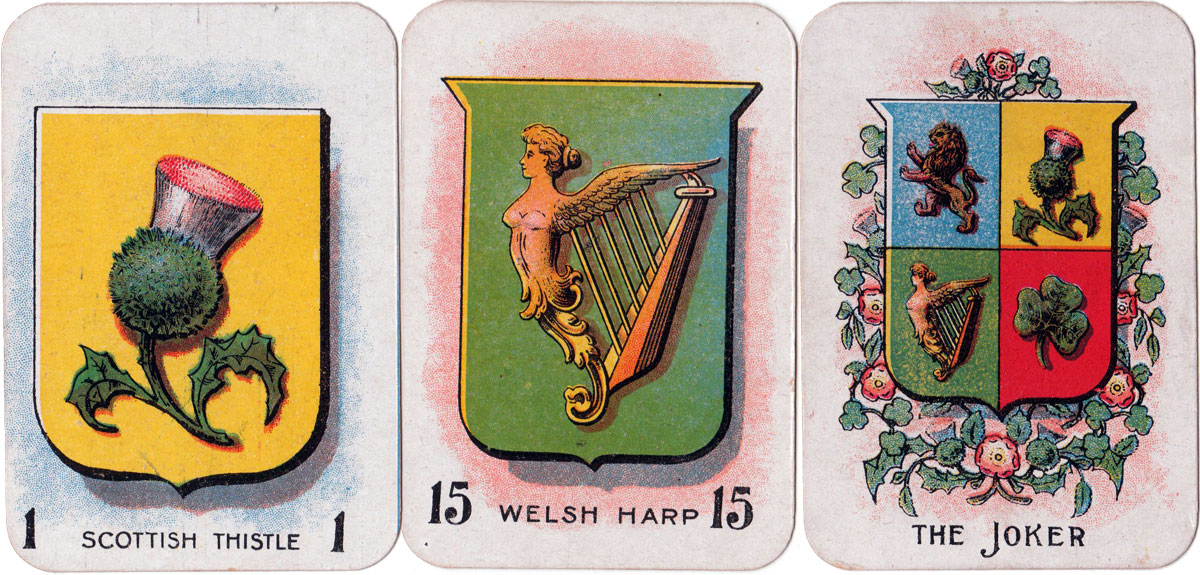
Above: “Blaze” was first issued in around 1920 see more→
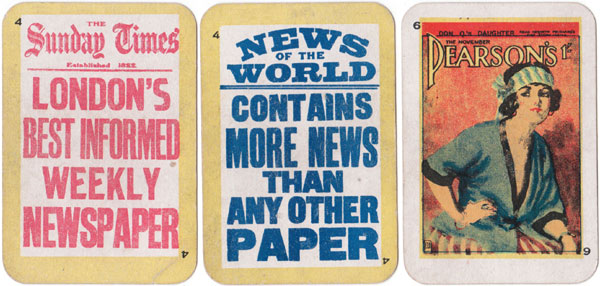
Above: “Fleet Street” was first issued in around 1923 see more→
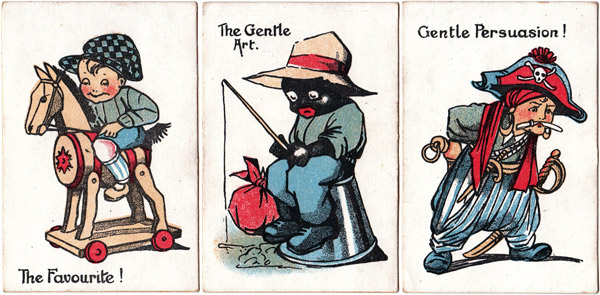
Above: ‘Snap’ drawn by British artist Linda Edgerton, c.1925 see more→
Linda Edgerton was a children’s illustrator in the 1920s & 30s. Illustrations of children at play, often imitating the adult world, were a popular design idea which found their place alongside characters from nursery rhymes. See also: ‘Happy Families’ drawn by Linda Edgerton, c.1925→
Happy Families is probably one of the most popular games ever produced and Chad Valley published at least four different sets.
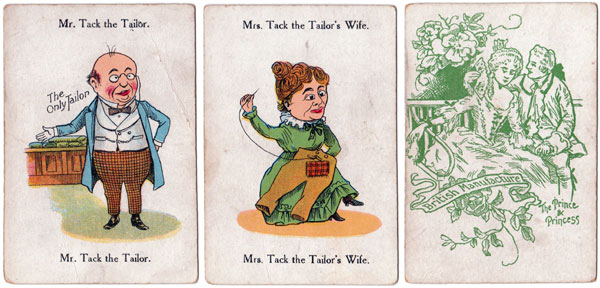
Above: ‘Happy Families’, c.1930 see more→
See also: companion ‘Pantomime Snap’ game, c.1930→
Nursery Rhymes help with the child’s transition between picture books and the first story book.
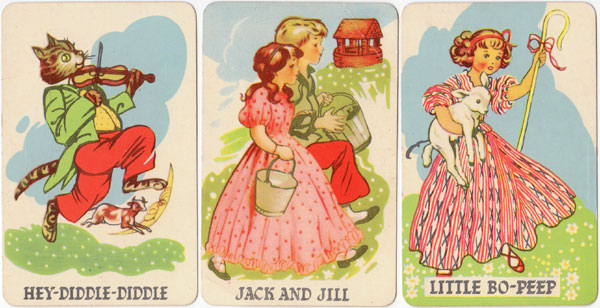
Above: ‘Nursery Rhyme Snap’ c.1950 see more→
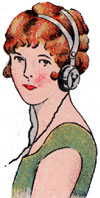
REFERENCES & CREDITS
• Toys for Toffs - the early history of Chad Valley→
Chad Valley’s Double Dummy Bridge & Whist Board




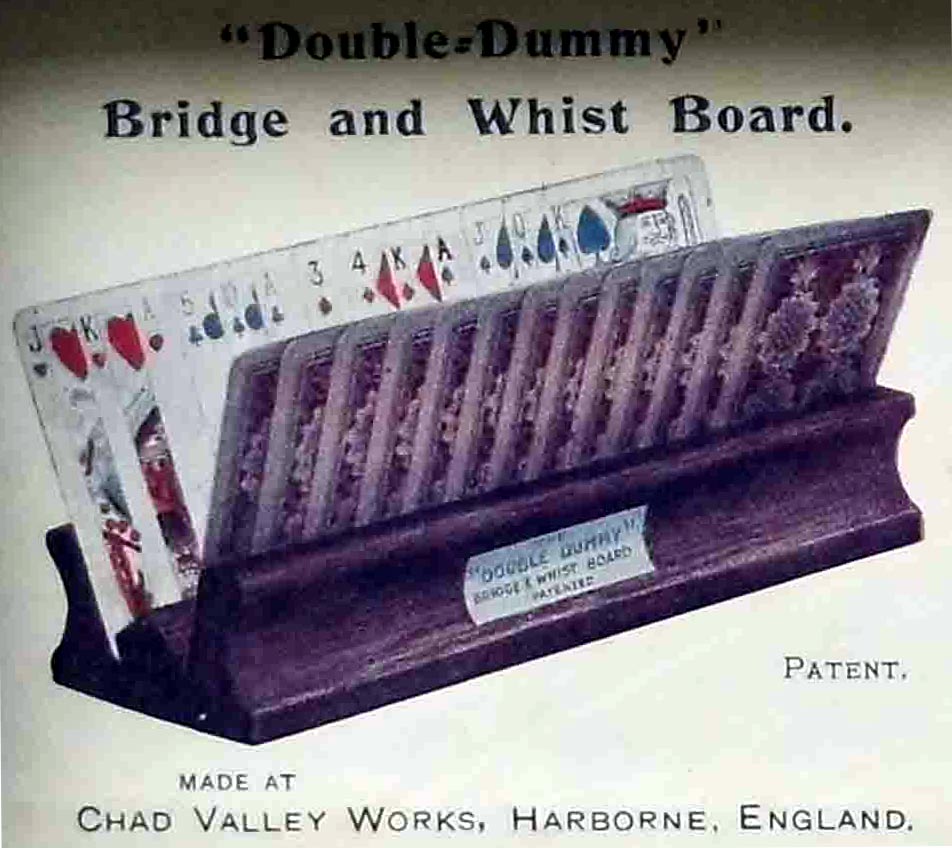
Above: the board is beautifully constructed from three pieces of mahogany glued together and highly polished and this version shows no sign of wear after almost a century. It looks immediately like an expensive piece of kit! The board is designed to carry two 13 card hands positioned in such a way that each player can see their own “partner’s” hand but not that of their opponent. I will confess at this point to disbelief that this could ever work, but amazingly it does and is extremely easy to use. However, I particularly love the picture on the lid of the box. Images courtesy Tony Hall.

By Rex Pitts (1940-2021)
Member since January 30, 2009
Rex's main interest was in card games, because, he said, they were cheap and easy to get hold of in his early days of collecting. He is well known for his extensive knowledge of Pepys games and his book is on the bookshelves of many.
His other interest was non-standard playing cards. He also had collections of sheet music, music CDs, models of London buses, London Transport timetables and maps and other objects that intrigued him.
Rex had a chequered career at school. He was expelled twice, on one occasion for smoking! Despite this he trained as a radio engineer and worked for the BBC in the World Service.
Later he moved into sales and worked for a firm that made all kinds of packaging, a job he enjoyed until his retirement. He became an expert on boxes and would always investigate those that held his cards. He could always recognize a box made for Pepys, which were the same as those of Alf Cooke’s Universal Playing Card Company, who printed the card games. This interest changed into an ability to make and mend boxes, which he did with great dexterity. He loved this kind of handicraft work.
His dexterity of hand and eye soon led to his making card games of his own design. He spent hours and hours carefully cutting them out and colouring them by hand.
Related Articles

Christmas Carols
Christmas Carols playing cards illustrated by Stuart Dilks

Pam is the Knave of Clubs
Playing cards as metaphors in 18th century art - from fate, chance and social hierarchy t...

Question and Answer Games
A card game called “Impertinent Questions and Pertinent Answers” was launched in the early 1920s by ...

Dr Sacheverell
Dr. Henry Sacheverell's impeachment in 1710 sparked widespread public unrest and political upheaval,...

Leadmill playing cards
Promotional pack for an arts centre in Sheffield with designs by Martin F. Bedford.

Agatha Christie and card games
Agatha Christie uses card-play as a primary focus of a story, and as a way of creating plots and mot...

English Heritage
52 different colour photos of historic sites managed by English Heritage.

The Malt Whiskies of Scotland
Three packs featuring photographs by Duncan McEwan of malt whisky distilleries in Scotland.

Typographic Playing Cards
Typographic Playing Cards designed by Jim Sutherland, c.2010.

76: Transitions: Hunt & Sons
Styles change and technology develops. This means that it's possible to see transition periods in th...

Gibson’s History of England
History without tears for young and old, 1920s.

Simpson (Piccadilly) playing cards
Innovative advertising pack for Simpsons of Piccadilly designed by André François.

Scruffy Mutts
‘Scruffy Mutts’ dog-themed playing cards, United Kingdom, c.1998.

Iroha Karuta for Hino City
Special version of Iroha Karuta, a traditional Japanese matching game, made for Hino City, Tokyo.

Iroha Karuta
Traditional Japanese matching game played mainly by children.

O-Shlemiel card game
O-Shlemiel card game with Yiddish words and phrases.
Trending Articles
Popular articles from the past 28 days




